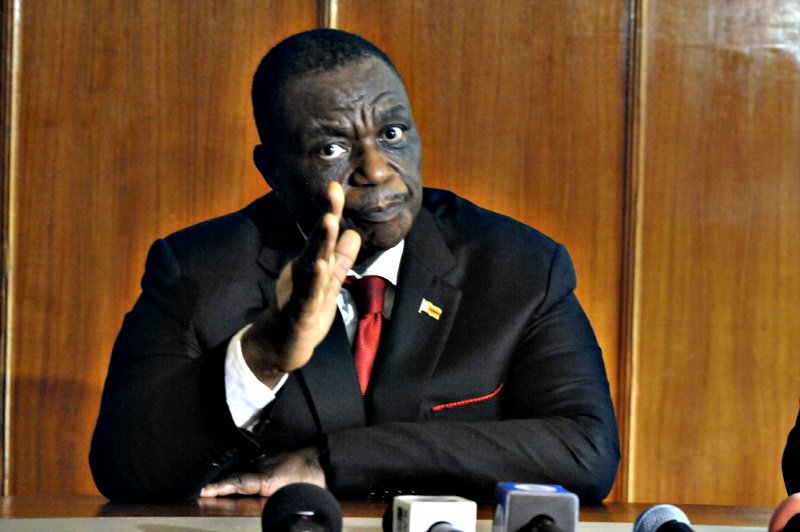Chamisa told to engage ED through Chiwenga

VP Constantino Chiwenga
Zanu PF hardliners reject Nelson Chamisa’s direct dialogue request with President Mnangagwa
Zimbabwean opposition leader Nelson Chamisa’s attempts to engage in direct dialogue with President Emmerson Mnangagwa to address the country’s ongoing political crisis have been met with resistance from hardliners within the ruling Zanu PF party.
Chamisa, leader of the Citizens Coalition for Change (CCC), has been calling for dialogue with Mnangagwa since the disputed August 2023 elections, citing allegations of vote fraud and intimidation of his supporters.
Chamisa recently dispatched emissaries to initiate a dialogue process with Mnangagwa, but Zanu PF hawks swiftly shut down the proposal. Zanu PF spokesperson Christopher Mutsvangwa confirmed that the ruling party informed Chamisa that any engagement with the president must go through Vice President Constantino Chiwenga. However, Chamisa has not reached out to Chiwenga.
Mutsvangwa emphasized that Zanu PF could not permit Chamisa to meet Mnangagwa directly, stating that the opposition leader must utilize the established channel through the vice president. Mutsvangwa highlighted that while engagement was not an issue, the CCC wanted to be treated as an exception, which the ruling party was not willing to grant. Zanu PF believes that as the winning party, it should not confer exceptional status on Chamisa and undermine its electoral mandate.
President Mnangagwa established the Political Actors Dialogue (Polad) following the 2018 elections as a platform for engaging with losing presidential candidates. However, Chamisa refused to join Polad, dismissing it as a Zanu PF platform. Despite this, Chamisa confirmed that he had sent emissaries to initiate dialogue with Mnangagwa, stressing that a political settlement through dialogue was crucial to resolving the multi-faceted crisis in the country.
Political analysts expressed skepticism about the prospects of successful dialogue between Mnangagwa and Chamisa without external intervention, particularly in the presence of Zanu PF hardliners.
Eldred Masunungure, a political analyst, believed the chances were limited unless there was a mediator trusted by both parties, potentially from regional leaders. Another analyst, Rejoice Ngwenya, suggested the need for involvement from a superior body like the Southern African Development Community (SADC) to bring the leaders together and ensure inclusivity of all critical stakeholders in addressing broader challenges faced by the country.
In 2008, the late President Robert Mugabe was compelled to engage in negotiations with the late opposition leader Morgan Tsvangirai following a disputed election. The talks resulted in the formation of a government of national unity (GNU) from 2009 to 2013, a period of relative economic and political stability. However, Zanu PF has resisted discussions on another GNU.
The stalemate between Chamisa and Mnangagwa highlights the deep divisions within Zimbabwe’s political landscape and the challenges in finding a common ground to address the country’s crisis






